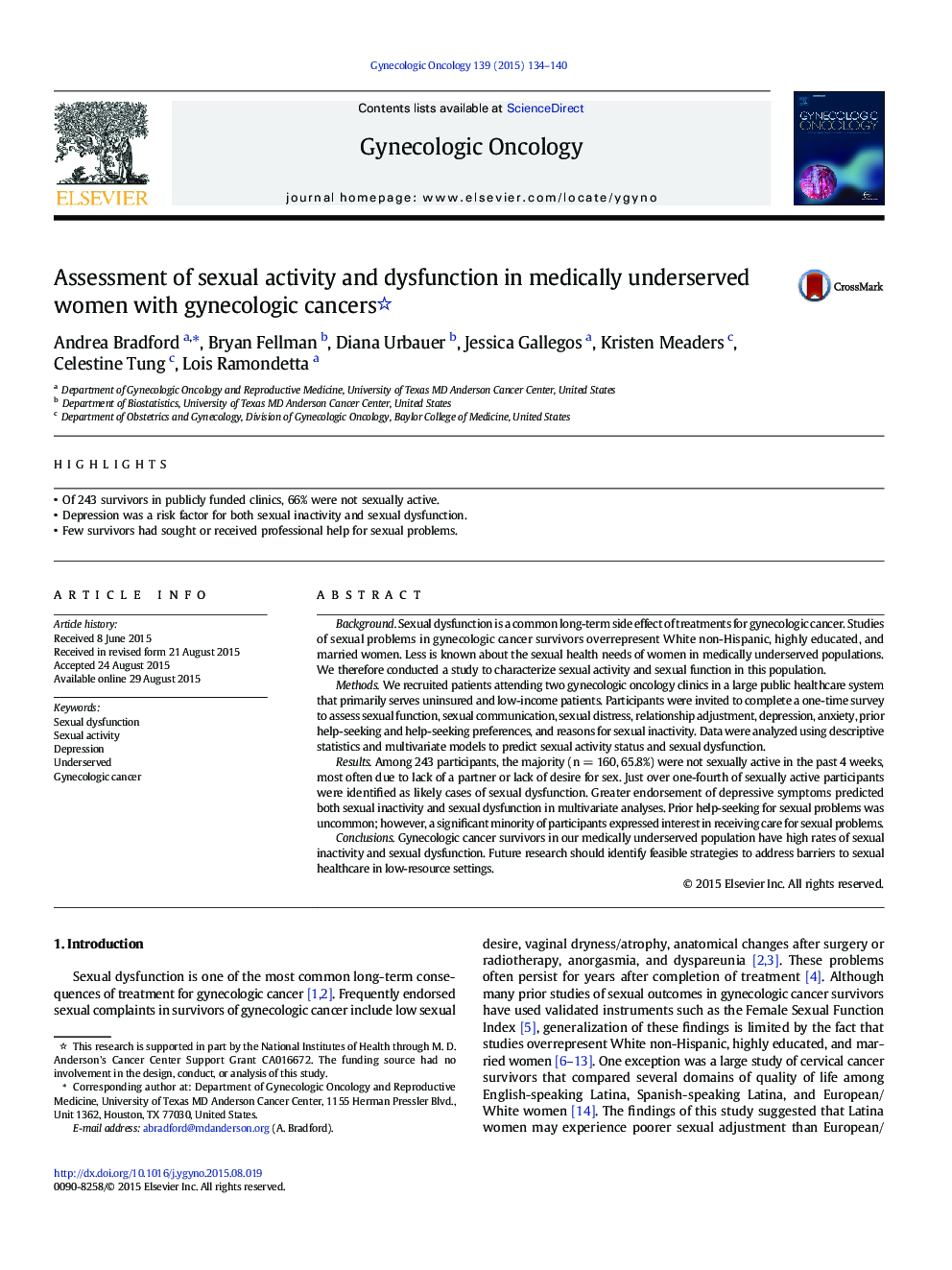| کد مقاله | کد نشریه | سال انتشار | مقاله انگلیسی | نسخه تمام متن |
|---|---|---|---|---|
| 3942557 | 1254014 | 2015 | 7 صفحه PDF | دانلود رایگان |

• Of 243 survivors in publicly funded clinics, 66% were not sexually active.
• Depression was a risk factor for both sexual inactivity and sexual dysfunction.
• Few survivors had sought or received professional help for sexual problems.
BackgroundSexual dysfunction is a common long-term side effect of treatments for gynecologic cancer. Studies of sexual problems in gynecologic cancer survivors overrepresent White non-Hispanic, highly educated, and married women. Less is known about the sexual health needs of women in medically underserved populations. We therefore conducted a study to characterize sexual activity and sexual function in this population.MethodsWe recruited patients attending two gynecologic oncology clinics in a large public healthcare system that primarily serves uninsured and low-income patients. Participants were invited to complete a one-time survey to assess sexual function, sexual communication, sexual distress, relationship adjustment, depression, anxiety, prior help-seeking and help-seeking preferences, and reasons for sexual inactivity. Data were analyzed using descriptive statistics and multivariate models to predict sexual activity status and sexual dysfunction.ResultsAmong 243 participants, the majority (n = 160, 65.8%) were not sexually active in the past 4 weeks, most often due to lack of a partner or lack of desire for sex. Just over one-fourth of sexually active participants were identified as likely cases of sexual dysfunction. Greater endorsement of depressive symptoms predicted both sexual inactivity and sexual dysfunction in multivariate analyses. Prior help-seeking for sexual problems was uncommon; however, a significant minority of participants expressed interest in receiving care for sexual problems.ConclusionsGynecologic cancer survivors in our medically underserved population have high rates of sexual inactivity and sexual dysfunction. Future research should identify feasible strategies to address barriers to sexual healthcare in low-resource settings.
Journal: Gynecologic Oncology - Volume 139, Issue 1, October 2015, Pages 134–140